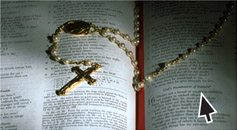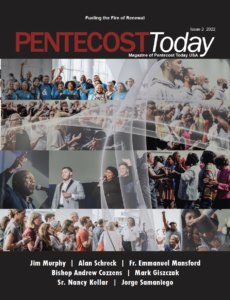The Epiphany of the Lord
Meditation and Questions for Reflection or Group Discussion
Mass Readings:
1st Reading: Isaiah 60:1-6
Responsorial: Psalm 72:1-2, 7-8, 10-13
2nd Reading: Ephesians 3:2-3, 5-6
Gospel: Matthew 2:1-12
The Epiphany, A Reminder to Join the Lord in Building his Kingdom
Arise! Shine, for your light has come. (Isaiah 60:1)
What extravagant promises this reading contains! The prophet speaks of “splendor,” “glory,” “radiance,” and overflowing heart, and the “wealth of nations.” And who first heard these glowing words? Exiled Jews who had just recently returned to a Jerusalem in ruins. Somehow, the words of the prophet didn’t quite match up with the realities on the ground. But that didn’t stop these believers from rolling up their sleeves and working to bring about the glory that had been promised to them.
Similarly, how did the Magi recognize an earth-shaking event in the humble stable with Joseph and Mary? Even the religious and political leaders of Israel missed the birth of the Messiah. So how could these pagan foreigners fall to their knees so readily, and offer such valuable treasures to this lowly child? Again, their expectations didn’t match up with what they found when they first laid eyes on the Holy Family.
Like the Magi and the returning exiles, we have been given great and precious promises not only about a heavenly kingdom, but also about God’s rule breaking into our world here and now. But how will that happen? Much of it depends on God’s timing, but a lot depends on us. Every day, God invites us to roll up our sleeves and get to work building his kingdom. Every day, he reassures us that even our smallest acts of love contain within themselves the splendor and glory of heaven.
Today’s feast tells us that the glory of God can be present in the most hidden and unlikely people and situations. It tells us that God is there in the everyday rhythms of our lives. May he give us eyes of faith to see him and trusting hearts to build the kingdom with him. The results will be spectacular!
“Thank you, Father, for the way you have traveled with us so far, and for the journey that lies ahead.”
Download this reflection with discussion questions here.
(Many thanks to The Word Among Us for allowing us to use meditations from their monthly devotional magazine. Used with permission. For more information on how to subscribe to their devotional magazine, go to www.wau.org).
Sunday, January 7, 2018
Questions for Reflection or Discussion:
- The first reading should fill us with hope as we contemplate and celebrate what God has accomplished in the coming of Jesus: “Rise up in splendor, Jerusalem! Your light has come, the glory of the Lord shines upon you. See, darkness covers the earth, and thick clouds cover the peoples; but upon you the LORD shines, and over you appears his glory. Nations shall walk by your light, and kings by your shining radiance. Raise our eyes and look about; they all gather and come to you: your sons come from afar, and your daughters in the arms of their nurses” (Isaiah 60:1-4).
- How are the words from the first reading fulfilled in Jesus’ coming? In what ways do these words and your faith in Jesus, fill you with hope?
- Are there some areas of your life that may need an increase in faith and hope? If so, what are some steps you can take in those areas in 2018 to increase your faith and hope?
- The responsorial psalm speaks of a king endowed by God to “govern your people with justice, and your afflicted ones with judgment.” In addition, “he shall rescue the poor when he cries out, and the afflicted when he has no one to help him. He shall have pity for the lowly and the poor; the lives of the poor he shall save” (Psalm 72: 2, 12, 13).
- How do these words from the responsorial psalm prophetically speak of the works of Jesus, and the works of us, his people? How would you describe the specific ways Jesus has fulfilled these words?
- In 2018, what are some steps you can take to share in the work of Jesus in order to “rescue the poor when he cries out, and the afflicted when he has no one to help him” and to “have pity for the lowly and the poor”?
- In the second reading, we hear of the wonderful revelation to St. Paul that the Gentiles are now “coheirs” and “copartners” with the Jewish people “in the promise in Christ Jesus through the gospel” (Eph 3:5).
- How would you describe the meaning of these words from the second reading?
- How can we as Christians be a better witness of Christ’s love to our Jewish brothers and sisters?
- If someone were to ask, how would you describe “the promise in Christ Jesus through the gospel”?
- In the Gospel reading, we are told that when the magi inquired of the whereabouts of the “newborn king of the Jews,” King Herod was “greatly troubled and all Jerusalem with him” (Matthew 2: 2, 3). The magi, on the other hand, “were overjoyed at seeing the star, and on entering the house they saw the child with Mary his mother. They prostrated themselves and did him homage” (2:11).
- Why do you think King Herod was so troubled by the news of “newborn king of the Jews”?
- Why do you think the magi’s reaction was so different than Herod’s?
- What is your reaction when you reflect on these events?
- The meditation ends with these words “Every day, God invites us to roll up our sleeves and get to work building his kingdom. Every day, he reassures us that even our smallest acts of love contain within themselves the splendor and glory of heaven. Today’s feast tells us that the glory of God can be present in the most hidden and unlikely people and situations. It tells us that God is there in the everyday rhythms of our lives. May he give us eyes of faith to see him and trusting hearts to build the kingdom with him. The results will be spectacular!”
- What are some new ways you can “roll up” your sleeves and “get to work building” the Lord’s kingdom?
- In order to do this, why is it so important for the Lord to “give us eyes of faith to see him and trusting hearts to build the kingdom with him”?
- Take some time now to pray and thank our Heavenly Father for his faithfulness and for guiding us and leading us now and in the future. Use the prayer below from the end of the meditation as a starting point.
“Thank you, Father, for the way you have traveled with us so far, and for the journey that lies ahead.”
[The discussion questions were created by Maurice Blumberg, who is currently a member of the board of directors of the ChristLife Catholic Ministry for Evangelization (www.christlife.org/) and a member of the National Service Committee Council of the Catholic Charismatic Renewal (www.nsc-chariscenter.org). Maurice was also the founding Executive Director of the National Fellowship of Catholic Men and a former chairman of the board of The Word Among Us (www.wau.org). He can be contacted at (Enable Javascript to see the email address) mblumberg@wau.org or mblumberg@aol.com.]


 Click Here for us to pray for your intentions through our new website.
Click Here for us to pray for your intentions through our new website. 
